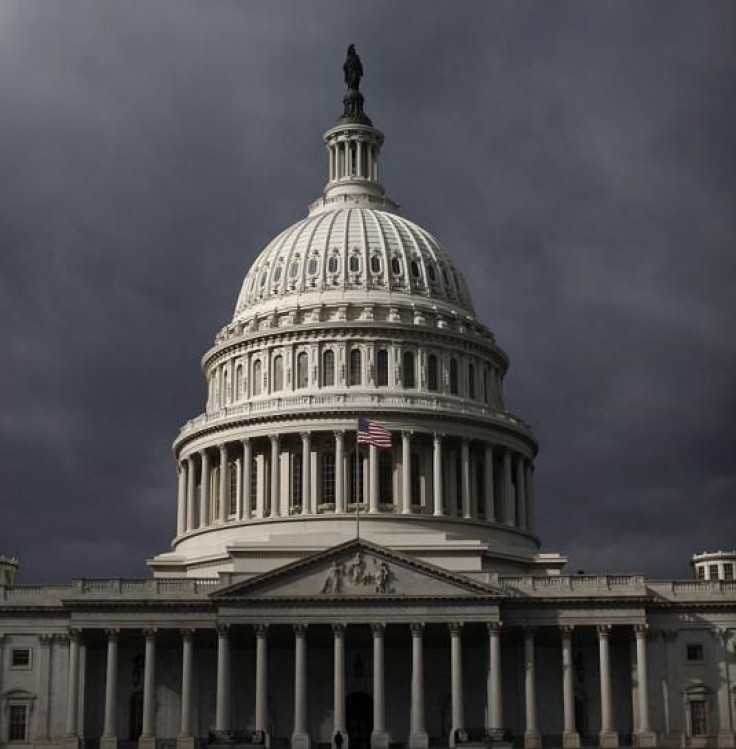Budget Deal, Farm Bill And Other Legislation On Congress' Huge To-Do List For December

For the first time in years, Congress won’t face a cliff-hanging or stroke-of-midnight deadline before the legislative session ends. Still, as the Affordable Care Act and immigration reform hog the spotlight, Democrats and Republicans are silently meeting to try to work out the kinks in their proposals to stave off future rounds of fiscal cliffs, and even a possible “dairy cliff.”
But Congress’ last legislative days of 2013 will be spent working on a lot of important policy issues, in very little time. The House of Representatives, which returned from Thanksgiving break on Monday, will adjourn next week. The Senate returns Dec. 9, when the two chambers will operate concurrently.
Here are some of the things the struggling 113th Congress needs to finish before it adjourns:
Budget Deal
The budget conference committee that formed after the government shutdown ended in October is still working against a Dec. 13 deadline to fund the government. Without a budget deal, the government runs out of funds on Jan. 15, which would force lawmakers to resort to another stopgap bill to keep the government open.
There is some optimism here -- mostly on the part of House and Senate leaders -- that budget chairs Paul Ryan, R-Wis., and Patty Murray, D-Wash., can cut a small deal, given that they have already abandoned hopes of a grand bargain. Therefore, a deal that could emerge would likely be a pretty narrow one that would determine how much of the sequestration cuts would be replaced with cuts from other areas; such a deal would likely set an overall spending cap for the remainder of fiscal year 2014. According to some reports, it’s shaping up to be a two-year deal.
“I’m hopeful that they’ll be able to work this out, but there’s clearly no agreement,” Boehner told reporters on Thursday during a weekly address. He later said, “I haven’t seen the agreement. We’ll wait and see what it looks like.”
Farm Bill
Congress needs a new five-year bill to deal with agricultural subsidies and welfare programs like food stamps. The current extension expired on Sept. 30 and new legislation is needed -- or some fear that next year's milk prices could increase to about $7 a gallon. That’s because farm policy would legally return to the permanent law, the 1949 farm bill, when the government would buy dairy products from producers at double the current market rate, according to CNBC. Yet, some have called this scenario is “Hogwash.”
“I’ve not seen any real progress on the farm bill. And so, if we’ve got to pass a one-month extension ... we’re prepared to do that,” Boehner said.
Lawmakers want to move away from directly paying farmers, and they are also fighting over how much to cut from food stamps. The House bill calls for approximately a $40 billion decrease, while the Senate prefers a $4 billion reduction.
National Defense Authorization Act
The House has already done its job on this one, passing a bill that is now stalled in the Senate. There are differences over how many amendments to be attached to the measure. Under consideration is how to address military sexual assault cases and whether to toughen sanctions on Iran -- even as the White House and other Western partners reached a tentative nuclear deal with the country in November.
Yellen For Fed
A new Fed chairman needs to be confirmed, and Janet Yellen, vice chair of the Fed, has already gotten the approval of the Senate’s banking committee. Expectations are that this appointment will be finalized this month.
‘Doc Fix’
Congress uses these fixes to temporally stabilize Medicare funding. When funding falls short, lawmakers either cut doctors’ pay or appropriate more money. Lawmakers don’t like the first option because it doesn’t encourage doctors to stick around. The nonpartisan Congressional Budget Office has warned that if Congress doesn’t enact a “doc fix” this month, physicians’ payments from the program will be cut by 24 percent.
© Copyright IBTimes 2024. All rights reserved.












